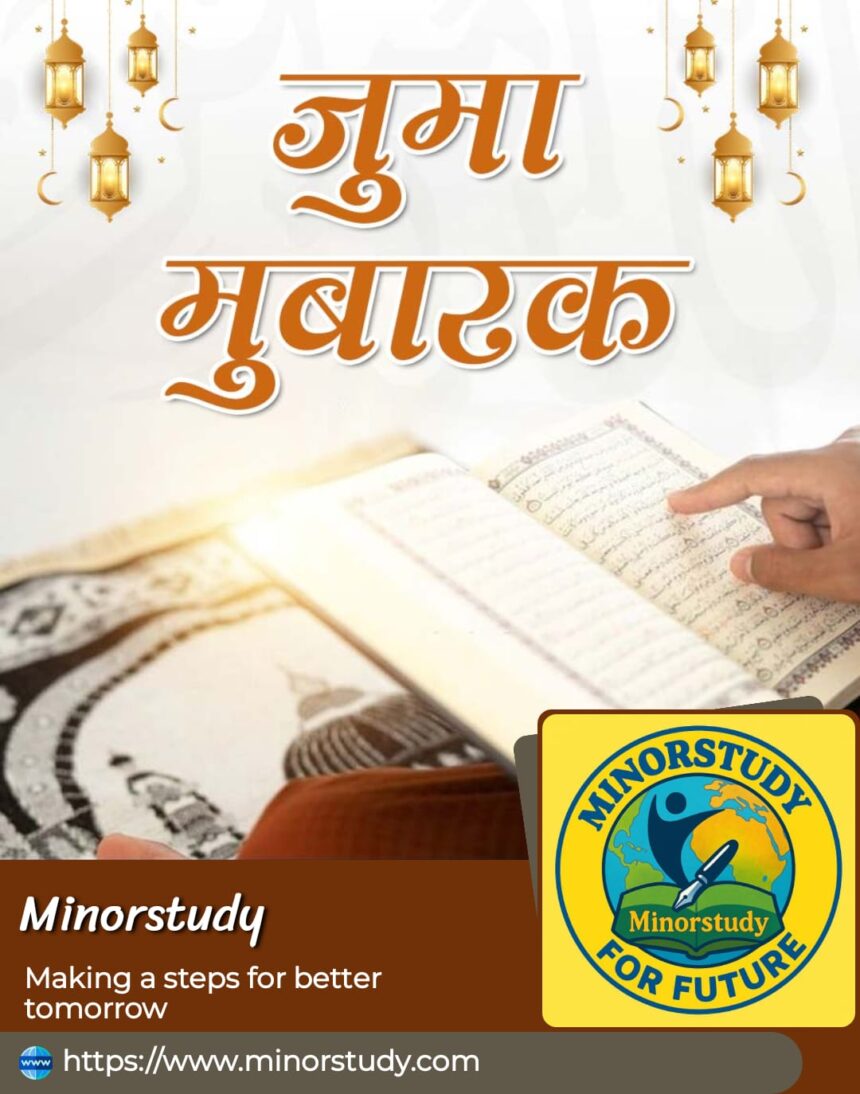🌙 Jumma Mubarak: A Day of Blessings, Reflection & Unity in Islam
Each week, Muslims around the world greet each other with “Jumma Mubarak”, a phrase that carries deep emotional, spiritual, and cultural significance. More than just a Friday greeting, this blessed day holds a unique place in Islamic tradition. Jumma (Friday) is not only a day of congregational prayer but a weekly Eid—a day filled with divine mercy, spiritual renewal, and community harmony.
- 🌙 Jumma Mubarak: A Day of Blessings, Reflection & Unity in Islam
- 📜 History of Jumma Mubarak
- ✅ Key Facts About Jumma Mubarak
- 🕰️ Timeline of Jumma Practices
- ✨ Religious and Spiritual Significance of Jumma Mubarak
- 🕌 Observance of Jumma: How Muslims Celebrate and Honor It
- ❓ Frequently Asked Questions (FAQs)
- 1. Why is Jumma considered so special in Islam?
- 2. Is Jumma prayer mandatory?
- 3. Can I miss Jumma prayer for work or studies?
- 4. What time is Jumma prayer held?
- 5. Is there a reward for reciting Surah Al-Kahf on Jumma?
- 💖 Wishing and Greeting on Jumma Mubarak
- 🌍 Importance of Jumma in Our Daily Lives and Society
- 📌 Important Points to Remember
- 🧭 Conclusion: Jumma—A Weekly Blessing That Guides the Soul
- 🙏 Final Words & Heartfelt Wishing
Let’s explore the history, facts, timeline, FAQs, observance practices, and lasting impact of Jumma Mubarak in a human-friendly and heartfelt manner.
📜 History of Jumma Mubarak
The significance of Friday (Jumma) dates back to Prophet Muhammad’s (PBUH) time and beyond. However, it was during his prophethood that the practice of Friday congregational prayers (Salat al-Jumu’ah) was institutionalized.
Historical Milestones:
📖 In the Qur’an: Surah Al-Jumu’ah (62:9) commands Muslims to leave off trade and hasten to the remembrance of Allah once the call to Friday prayer is heard.
🕋 First Jumma Prayer: Conducted by the Prophet Muhammad (PBUH) after his migration to Madinah, in a place called Banu Salim ibn Awf, near Quba.
💡 Jumma has always been considered a weekly Eid, a day of joy, cleanliness, and special spiritual emphasis.
✅ Key Facts About Jumma Mubarak
| Aspect | Detail |
|---|---|
| Name | Jumma (Friday) |
| Greeting | Jumma Mubarak (Blessed Friday) |
| Occurrence | Every Friday |
| Islamic Equivalent | Weekly Eid (Eid al-Usbu’) |
| Significance | Day of special prayer, mercy, and forgiveness |
| Quranic Mention | Surah Al-Jumu’ah (62:9) |
| Special Sunnah | Ghusl, wearing clean clothes, applying perfume, reciting Surah Kahf |
| Community Bond | Strong focus on congregation and brotherhood |
🕰️ Timeline of Jumma Practices
| Period | Event |
|---|---|
| Pre-Islamic Arabia | Friday was a market and community day among some tribes |
| 7th Century CE | Prophet Muhammad (PBUH) formalized Jumma prayer after Hijrah |
| 622 CE | First official Jumma prayer conducted in Medina |
| Caliphate Period | Friday sermons became a platform for state communication |
| Present Day | Practiced by over 1.9 billion Muslims globally every week |
✨ Religious and Spiritual Significance of Jumma Mubarak
Day of Forgiveness and Mercy:
It is believed that on Friday, Allah opens special doors of forgiveness. The Prophet said:
“The best day on which the sun has risen is Friday…” (Muslim)Surah Al-Kahf Recitation:
Reading Surah Al-Kahf on Jumma brings light for the week ahead.Answered Duas:
There is a special hour on Jumma in which prayers are not rejected.Congregational Unity:
Jumma brings Muslims together in mosques, reinforcing community and spiritual harmony.Reward Multiplication:
Acts of worship done on Jumma are multiplied in reward.
🕌 Observance of Jumma: How Muslims Celebrate and Honor It
✅ Religious Observances:
Perform Ghusl (ritual bath)
Wear clean and preferably white clothes
Apply fragrance
Go early to the mosque
Listen to the Khutbah (sermon) attentively
Perform Sunnah prayers before and after
🌿 Personal & Family Practices:
Preparing special meals
Greeting family members with “Jumma Mubarak”
Giving charity (Sadaqah)
Visiting family and friends
Praying for the deceased
❓ Frequently Asked Questions (FAQs)
1. Why is Jumma considered so special in Islam?
Because Allah created Adam on Friday, and it is the day of weekly congregation. It’s also the day when the Hour (Qiyamah) will be established.
2. Is Jumma prayer mandatory?
Yes, Jumma prayer is Fard (obligatory) for adult male Muslims. Women and children can attend but are not required.
3. Can I miss Jumma prayer for work or studies?
Missing it without a valid reason is considered a major sin. Try to schedule important tasks around Jumma prayer.
4. What time is Jumma prayer held?
Jumma prayer replaces the Dhuhr prayer on Fridays and is held shortly after noon.
5. Is there a reward for reciting Surah Al-Kahf on Jumma?
Yes, it’s said to bring light between the two Jummahs and protects from Dajjal.
💖 Wishing and Greeting on Jumma Mubarak
Greeting someone with “Jumma Mubarak” is not just tradition—it reflects a heartfelt wish for blessings, peace, and divine guidance.
Sample Greetings:
🌟 “Jumma Mubarak! May Allah’s blessings shine upon you like the sun this Friday.”
🌸 “Wishing you a peaceful Jumma full of mercy, guidance, and light.”
🕊️ “On this blessed day, may your prayers be answered and your heart find peace.”
🌍 Importance of Jumma in Our Daily Lives and Society
✨ In Our Lives:
Spiritual Reset: Offers a weekly chance to reconnect with God and self.
Mental Detox: Encourages pausing the routine hustle for inner reflection.
Physical Cleanliness: Promotes hygiene through the Sunnah of bathing and grooming.
Community Belonging: Strengthens bonds with fellow believers.
🌐 In Society:
Unity & Brotherhood: Mosques filled with people from all walks of life stand shoulder to shoulder.
Ethical Reminders: Khutbahs often address social issues, guiding people toward justice.
Charity & Generosity: Increased spirit of giving on Fridays uplifts the needy.
📌 Important Points to Remember
Jumma is more than a day—it’s a spiritual institution.
Don’t skip the Khutbah (sermon)—it’s part of the Jumma prayer.
Duas made on Jumma are special—use the time wisely.
Sending blessings on the Prophet (PBUH) is highly recommended.
Jumma Mubarak is a weekly gift from Allah—don’t let it pass unnoticed.
🧭 Conclusion: Jumma—A Weekly Blessing That Guides the Soul
Jumma Mubarak is not just a ritual; it’s a divine opportunity to realign, restart, and refresh the soul. In a world that often overwhelms us with stress and distractions, Friday brings focus back to faith, family, and forgiveness. It is a day that enhances both the inner spiritual world and the outer communal life.
Let’s not only say “Jumma Mubarak” but live its blessings every week—by practicing mindfulness, compassion, and connection.
🙏 Final Words & Heartfelt Wishing
✨ Jumma Mubarak to You and Your Loved Ones!
May Allah grant you peace, mercy, and boundless blessings this Friday and always.








